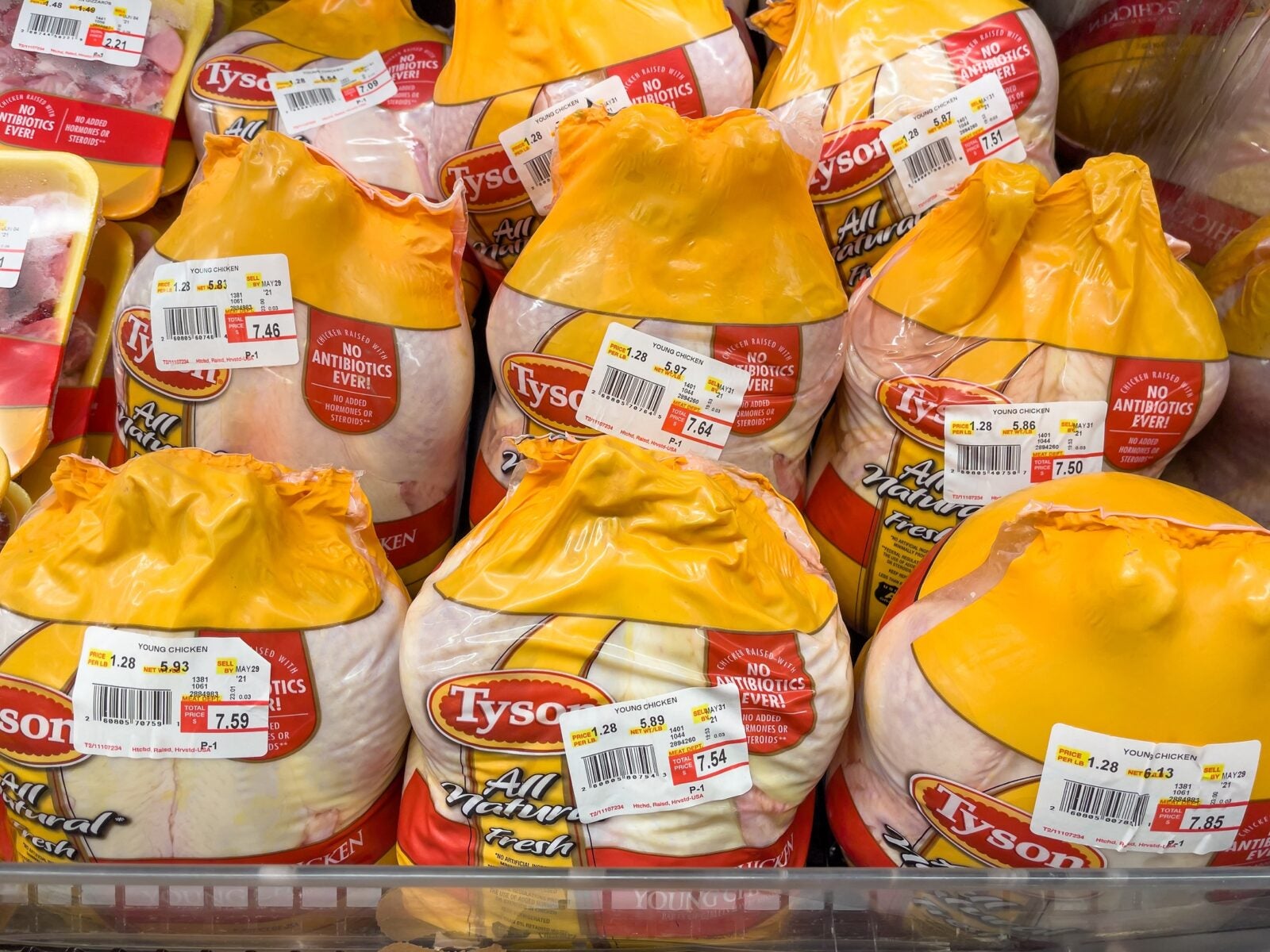
US meat major Tyson Foods is to close four domestic chicken plants in a bid to reduce costs against a backdrop of slowing demand and plummeting profits.
The facilities – two in Missouri and one each in Arkansas and Indiana – are expected to stop operating in the first two quarters of the company’s 2024 fiscal year. Tyson estimates total charges of $300m to $400m from the closures.
The company said that it will shift production to other facilities.
Just Food asked Tyson for details of how many jobs are to be lost as a result of the decision announced today (7 August) but the company declined to provide that figure.
Announcing the closures alongside its 2023 third-quarter financial results, the Jimmy Dean and Hillshire Farm brands owner tried to accentuate the positives of the move.
CEO Donnie King said it “demonstrates our commitment to bold action and operational excellence as we drive performance, including lower costs and improving capacity utilisation and build on our strategy of making Tyson Foods stronger in the long-term”.
Arkansas-based Tyson reported third-quarter sales of $13.14bn, down 3% year-on-year, while its adjusted operating income fell by 82% to $179m. The current quarter included a goodwill impairment charge of $448m.
King said: “While current market dynamics remain challenging, Tyson Foods is fully committed to our vision of delivering sustainable, top-line growth and margin improvement.”
Tyson has already cut corporate jobs and shut other chicken plants this year. It announced in April 15% of senior leadership roles and 10% of corporate roles were to be shed. In March, Tyson announced the closure of two plants in Arkansas and Virginia with more than 1,600 jobs impacted.
Among other headwinds Tyson is facing, it has said reduced demand for beef has made it difficult to pass on higher costs to consumers despite steep inflation on labour, grain and other inputs.
Tyson still anticipates fiscal 2023 revenue in a range of $53bn to $54bn.
